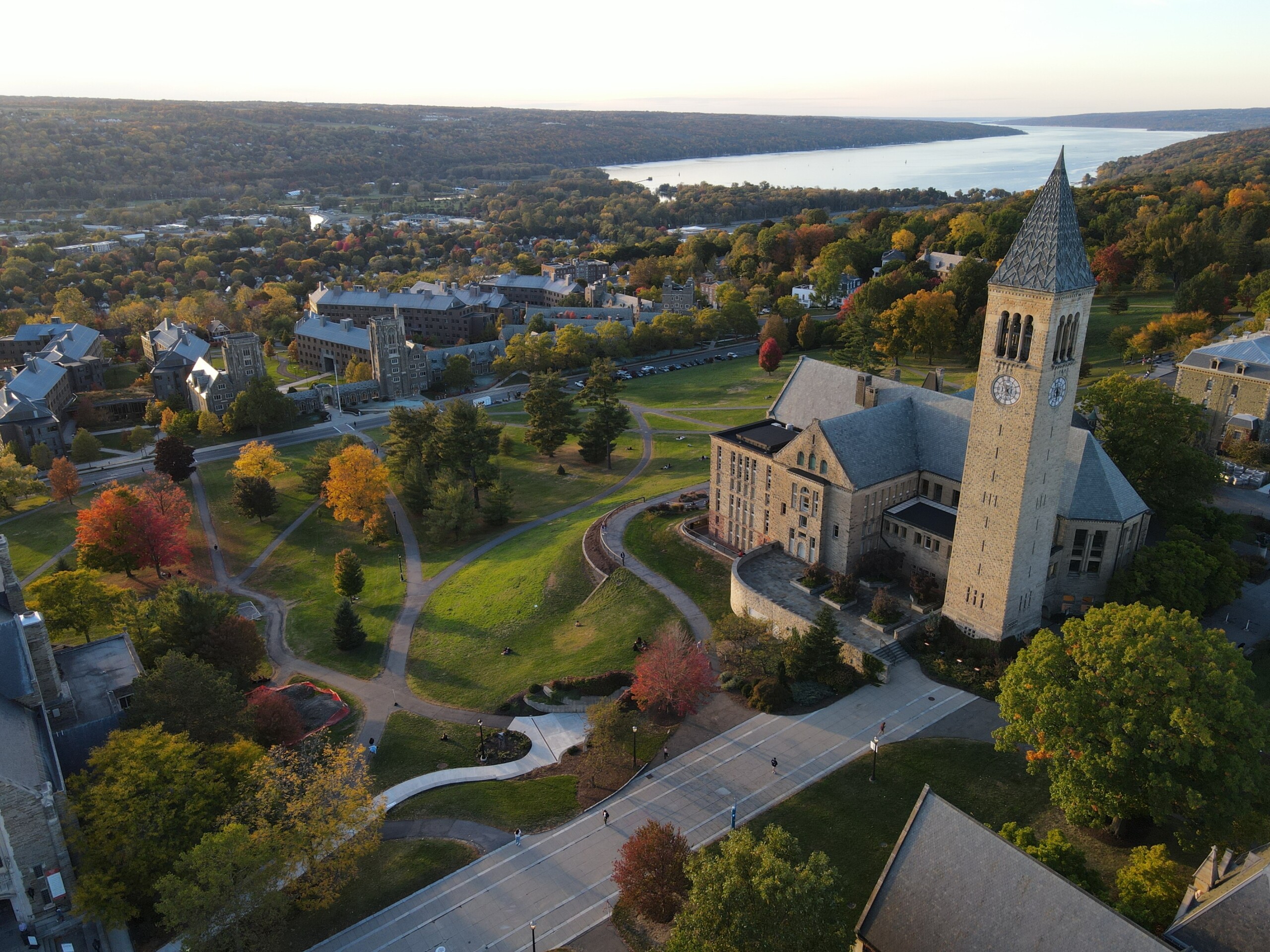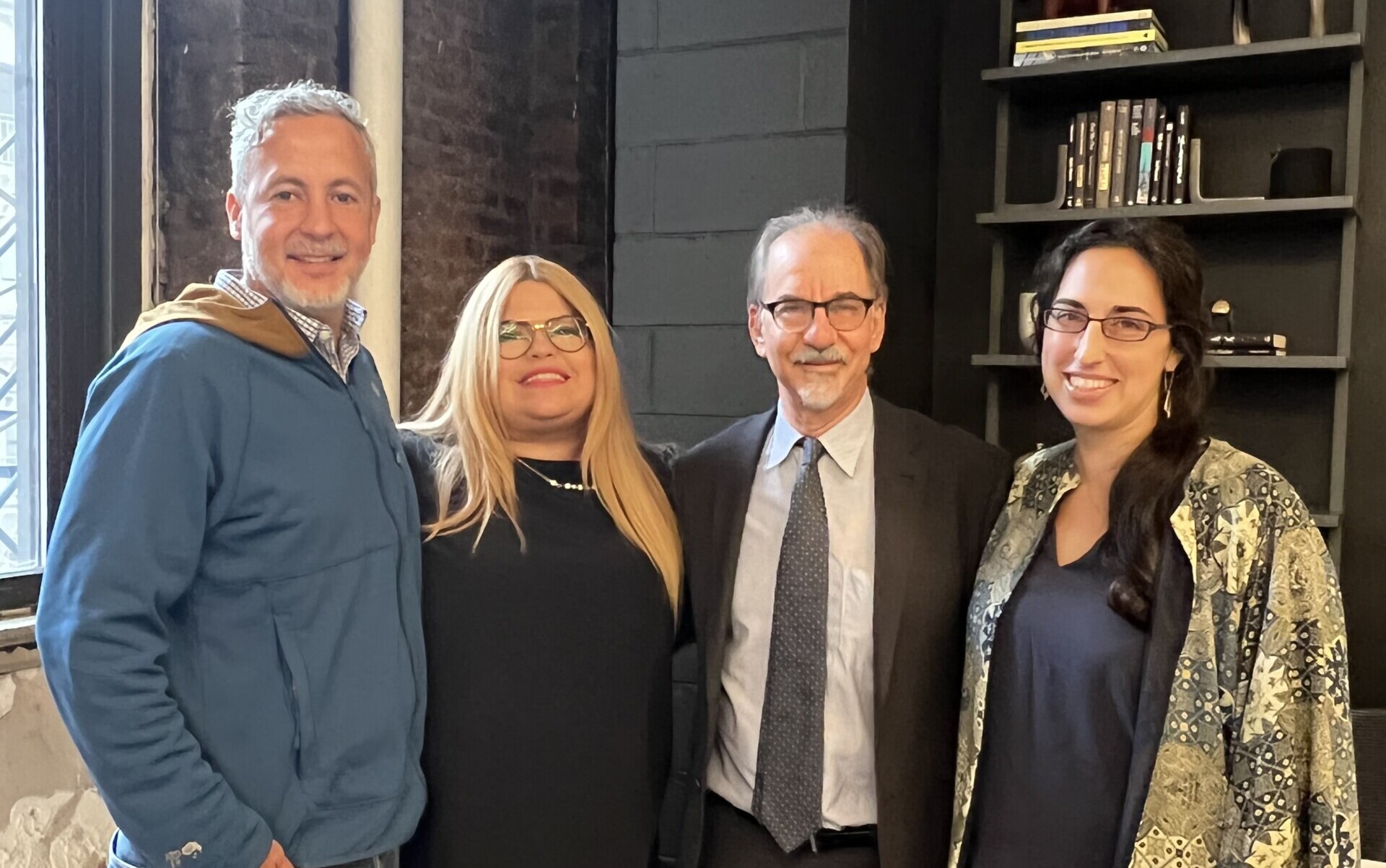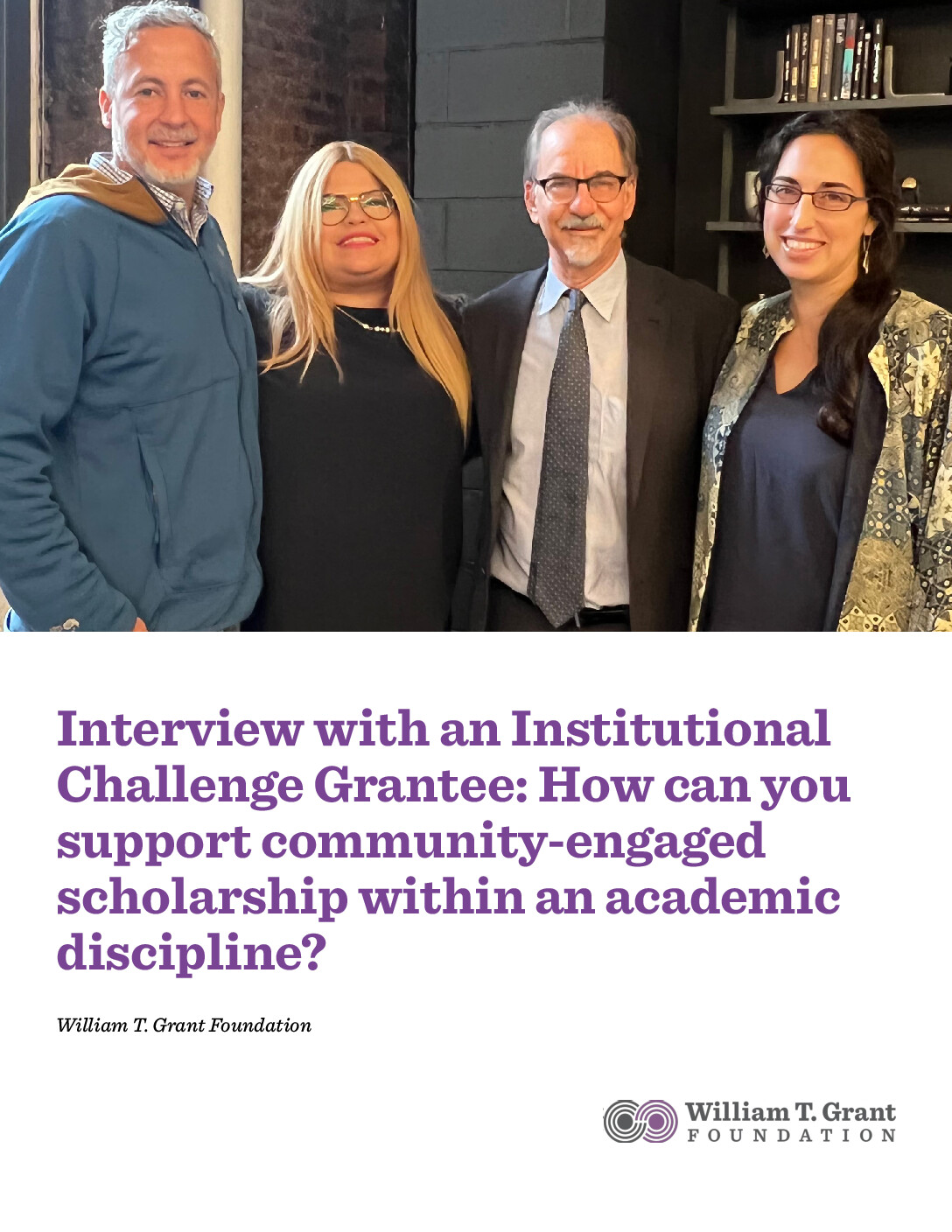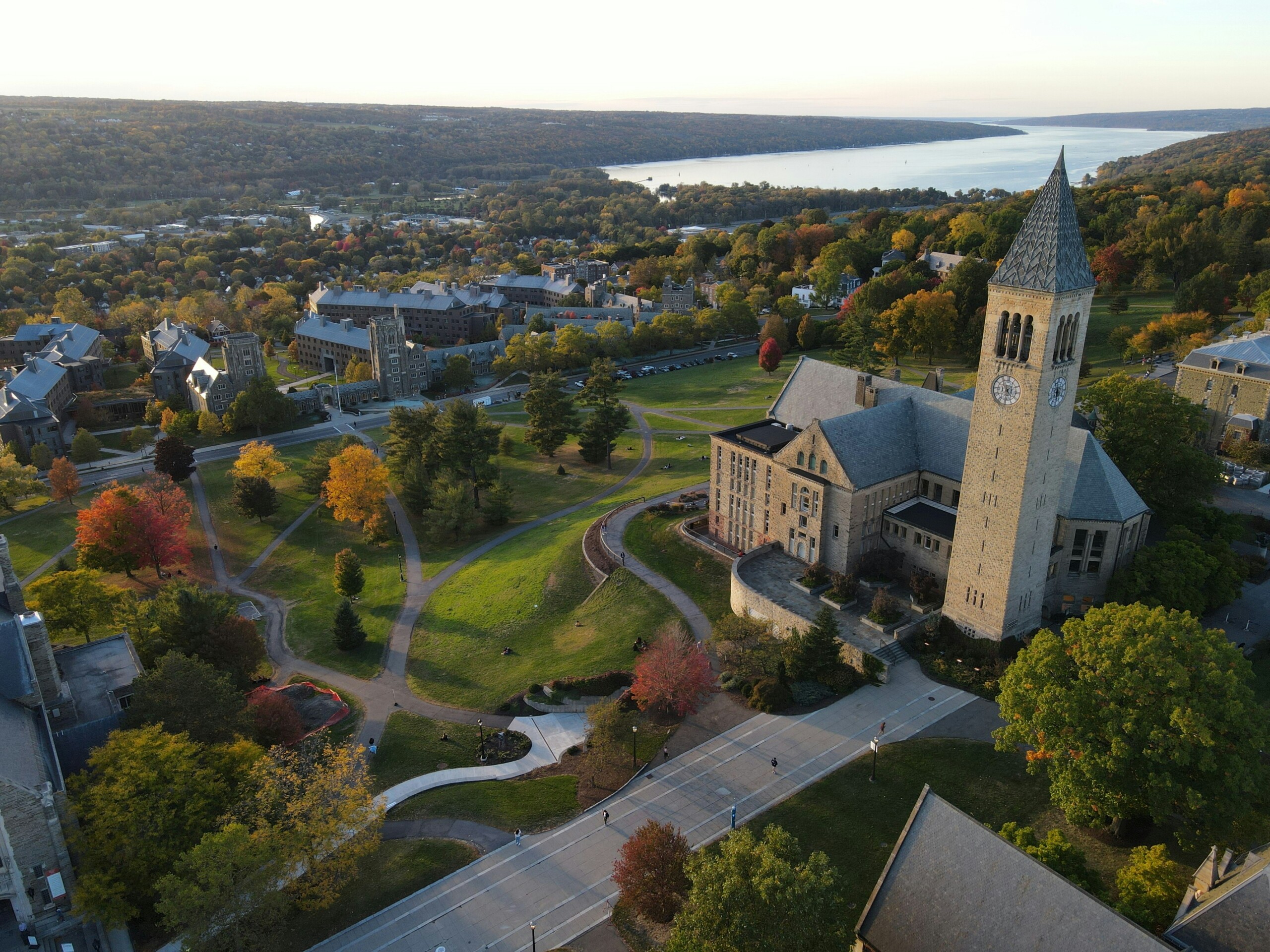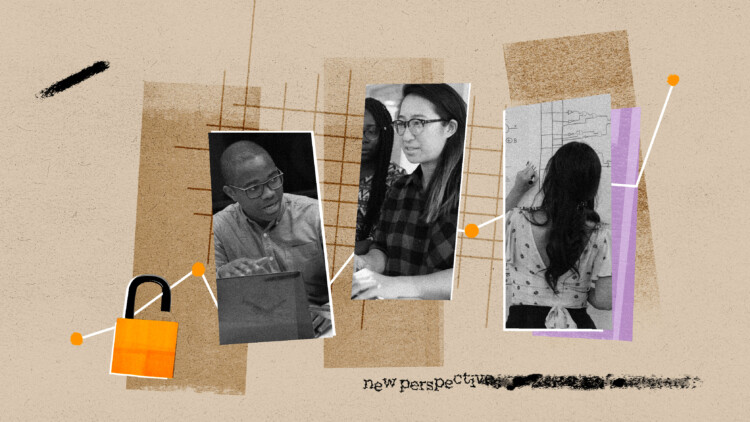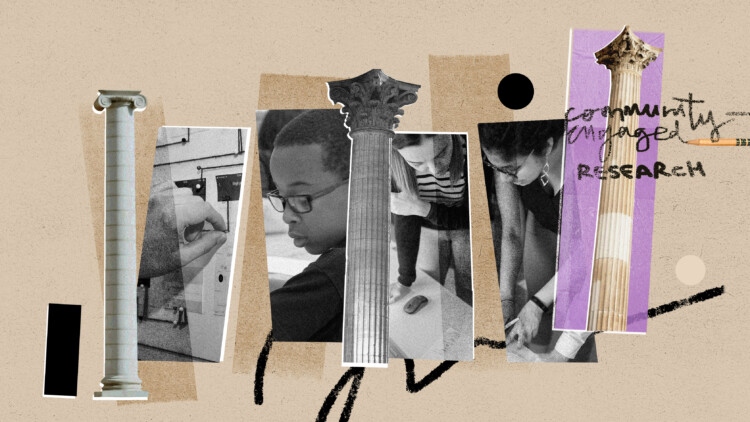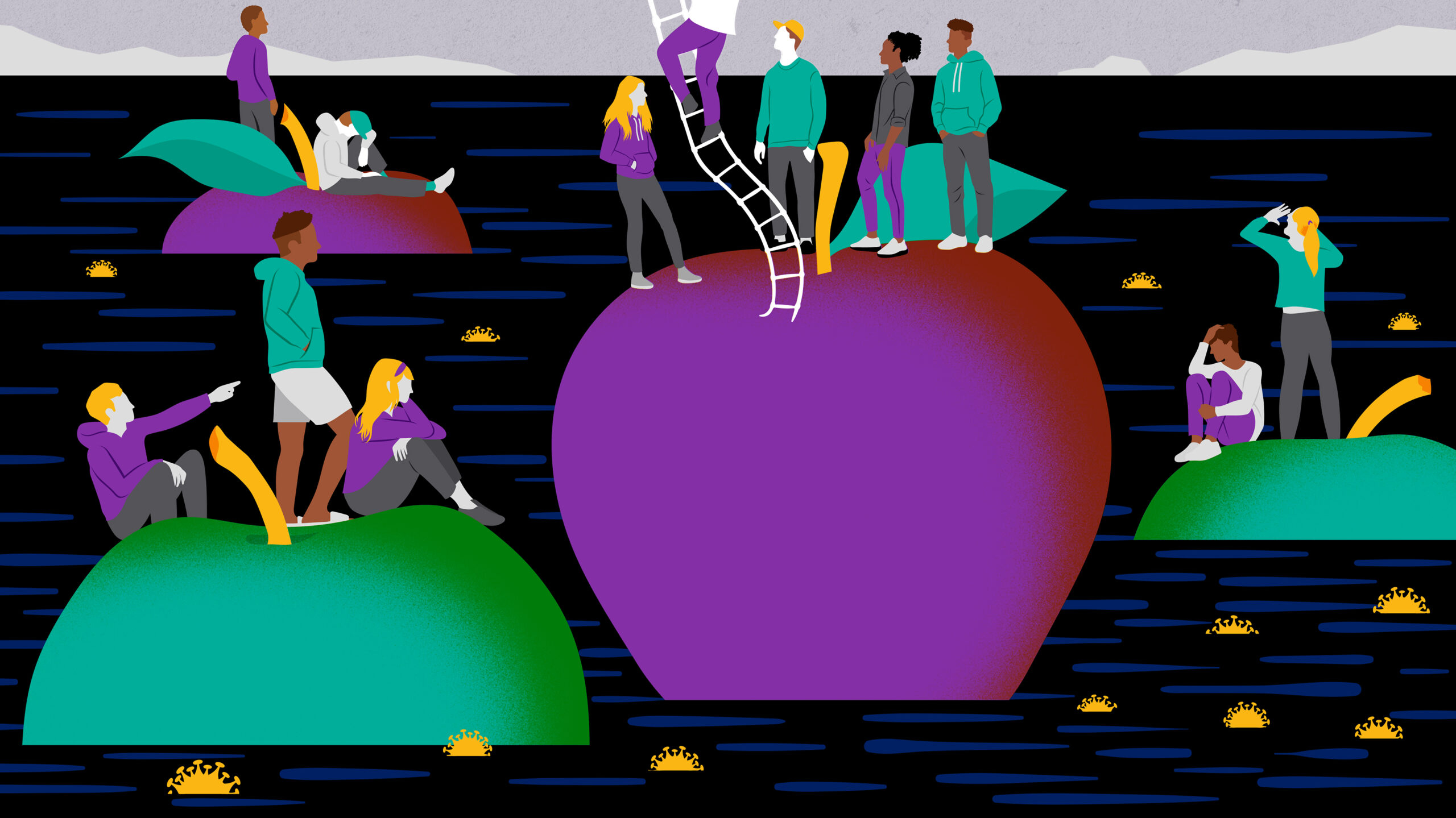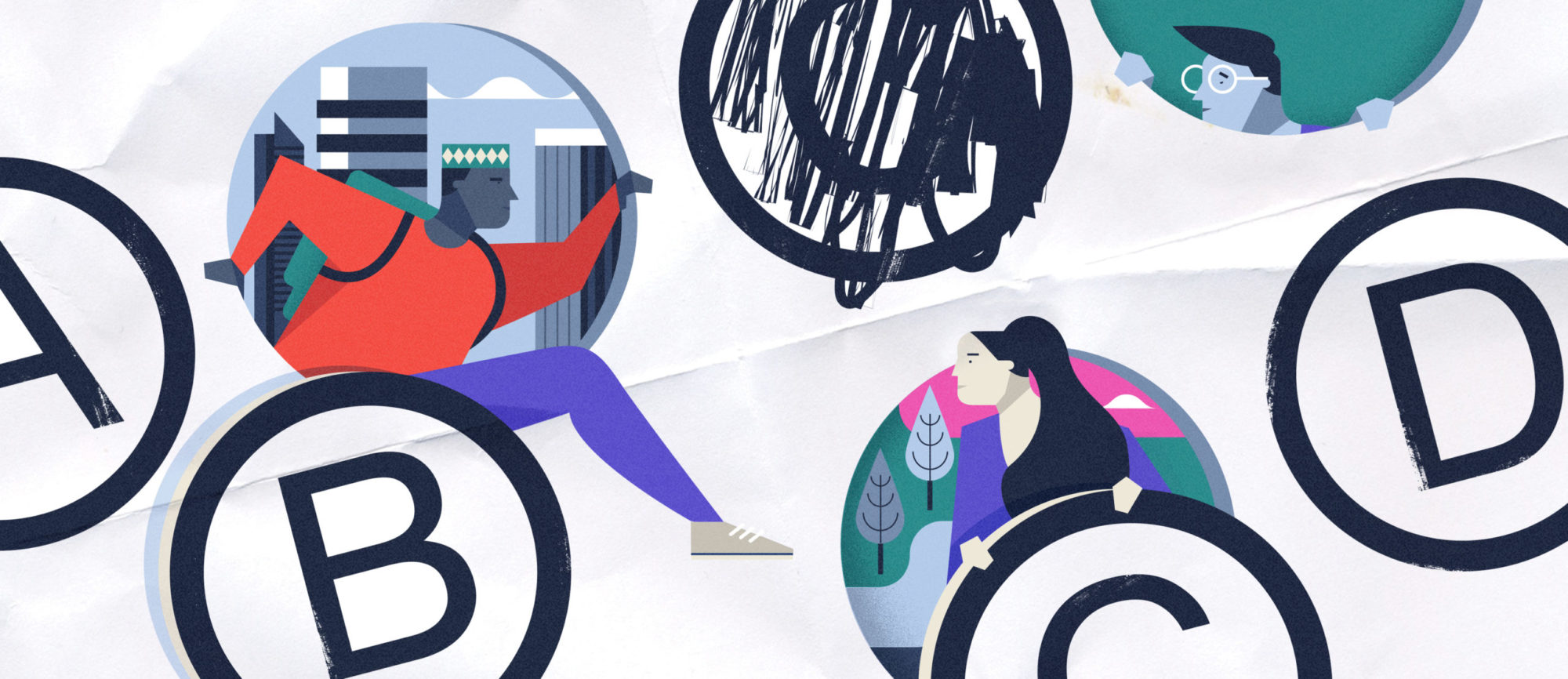Foundation Staff
February 21, 2024
Winners of the Institutional Challenge Grant (ICG) have adopted a variety of approaches to encourage and incentivize faculty to pursue partnership-oriented, engaged scholarship. Many are located in schools and colleges with applied missions, such as schools of education, social work, public policy, and nursing. But what about colleges of arts and sciences, which house disciplinary departments dedicated to testing theories and upholding basic science? Can such colleges broaden their missions to value community-engaged scholarship?
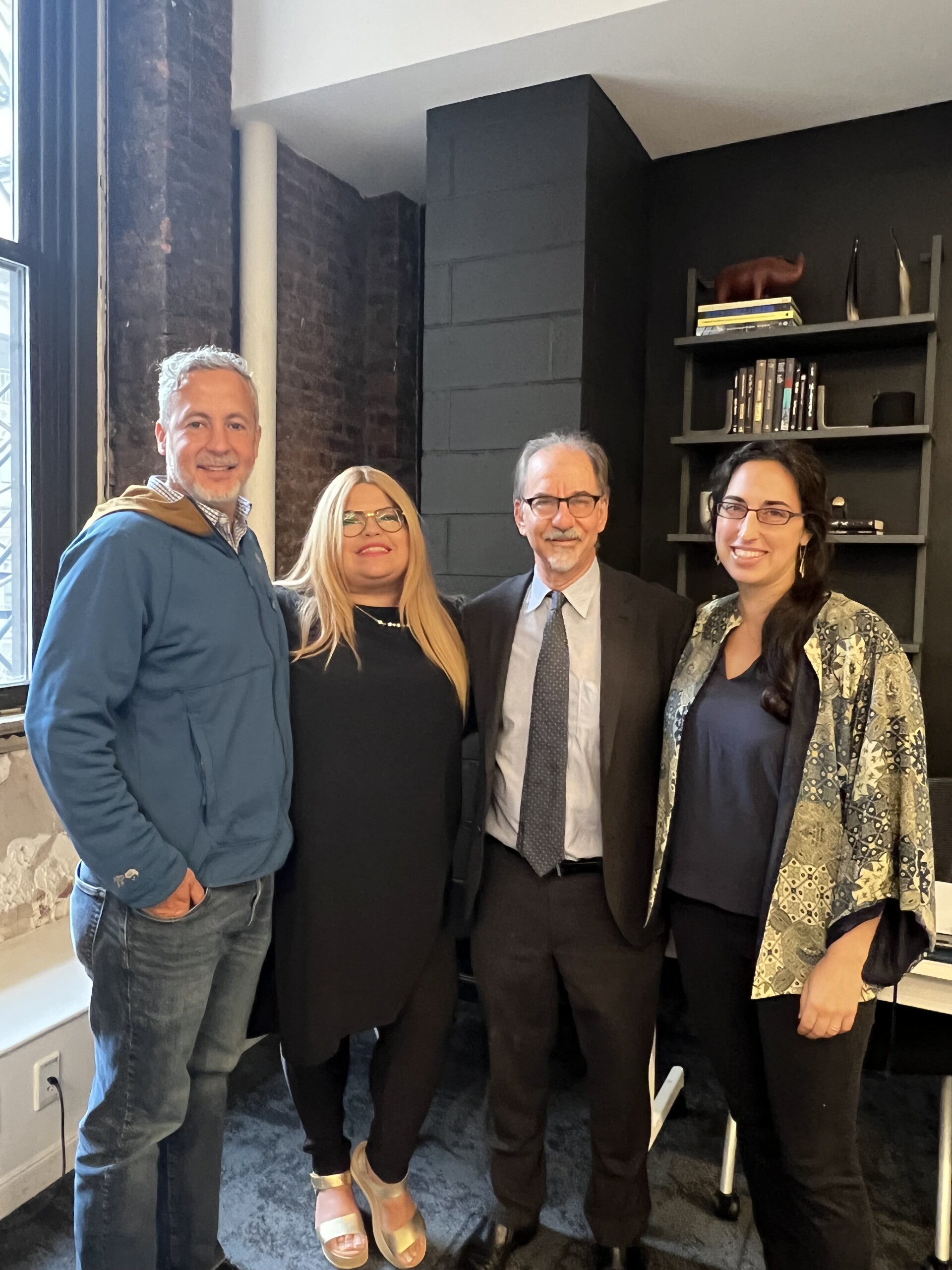
Gustavo Bobonis, Damarys Varela Vélez, Adam Gamoran, and Emily Goldman
Based on the University of Toronto’s Department of Economics, the answer is a resounding YES. On November 30, 2023, the department supported the launch of the Forward Society Lab, “where research and policy join hands to drive social progress.” The Forward Society Lab provides a university infrastructure for researchers to develop and support partnerships with nonprofit organizations and government agencies. The Lab uses the acronym FOS, which is the Greek word for light, to signify the value of learning from the communities with which its scholars are engaged.
In announcing the launch, FOS co-director Raji Jayaraman, an economist with appointments in Toronto and Berlin, explained the mission in this way:
“FOS was conceived to solve a basic matching problem. On one side, some organizations are doing amazing work, trying to serve the needs of marginalized communities around the world, but they often lack the time and capacity to leverage data-driven evidence that can inform their decisions. On the other side, you have researchers who have the interest and skills needed to conduct the type of research needed to bring evidence to bear on socially relevant practice-oriented questions, but they lack logistical support to do this. FOS builds a bridge between these two sides.”
The FOS website highlights the partnerships they are supporting, including their inaugural partnership led by FOS co-director (and ICG PI) Gustavo Bobonis, professor of economics, with the Puerto Rico Department of Education, and Damarys Varela Vélez, Operations Manager in the Institute for Professional Development at the Puerto Rico Department of Education. In September 2023, Bobonis was named an “evidence champion” by the North America regional office of the Abdul Latif Jameel Poverty Action Lab (J-PAL) for his “significant role in helping to improve socioeconomic outcomes in Puerto Rico.” Recently, we spoke with Professor Bobonis about his motivation and hopes for the Forward Society Lab:
Why did you start the Forward Society (FOS) Lab?
We started the Forward Society Lab because, as scholars and applied researchers, we feel compelled to respond to needs expressed to us collectively from around the world. FOS was conceived to help social scientists work more closely with policymakers and practitioners to solve problems of practice that affect us all. There are organizations out there performing incredible work, trying to improve the lives of marginalized communities globally. Wherever they are working, practitioners are delivering education, improving public governance structures, narrowing gender inequities, and addressing the needs of vulnerable communities impacted by climate change. They are experts in their communities’ experiences and needs. Yet they frequently lack the resources and time to use rigorous science to support their decision-making. There are also researchers with both the interest and expertise to undertake research that can help address such policy-relevant questions, but they often lack the logistical and administrative support to shift their work toward problems of practice. FOS acts as a connector. By supporting the joint work of practitioners and researchers through FOS, we work toward evidence-backed solutions that can have lasting policy influence beyond the mere creation of knowledge and the publication of results.
Research-practice partnerships (RPPs) are the key conduit for this work and a cornerstone of the FOS model. We are working to establish, logistically support, and help disseminate these very close collaborations between policymakers, researchers, and other actors who are interested in being catalysts for change. The true long-term collaboration of these three groups can make a difference in changing the landscape of evidence-based policymaking.
What are the unique challenges of discipline-based scholarship in supporting community-engaged research?
A significant challenge arises from the misalignment of incentives. We encounter a fundamental tension between traditional academic incentives and the needs of the communities we support. Academic disciplines traditionally reward theoretical and empirical contributions published in selective journals. This emphasis often encourages a slower pace of research focused on advancing disciplinary knowledge rather than addressing actionable, real-world problems. This disconnect not only hinders the relevance of research outcomes to those outside academic circles, but can also strain relationships with implementing partners, ultimately impacting the communities we aim to support.
To navigate these challenges, it’s crucial to foster an academic culture that values engaged scholarship. This involves rethinking reward structures to recognize the importance of research that is both rigorous and directly beneficial to implementing partners.
At the Forward Society Lab, we are committed to bridging this gap through our RPPs. By prioritizing long-term collaborations and iterative learning, we not only understand community challenges more deeply but also co-develop and rigorously test solutions that have a tangible impact. This approach enhances the relevance of our research and strengthens our relationships with our implementation partners. It reflects our dedication to ensuring that academic research serves wider marginalized communities effectively, marking a significant step toward reconciling the tension between discipline-based scholarship and community-engaged research.
Why are you orienting your work toward RPPs?
RPPs are a dynamic and responsive model where the learning cycles mentioned above improve our ability to generate actionable knowledge in the short, medium, and long term, enhancing the sustainability and efficacy of the research and its application in real-world settings. Because this work transcends the scope of a single project, we find that RPPs foster a respectful and mutually beneficial relationship among researchers, implementing partners, and the communities they serve. By emphasizing ongoing collaboration and responsiveness, RPPs not only contribute to the development of effective solutions but also uphold the dignity and priorities of the communities involved.
How can we encourage others to follow your example?
Continuing to share our successes and those of other RPPs with others. Keep talking about the nature of RPPs and how they put evidence tools into the hands of people with local expertise.
RPPs are part of our commitment to human-centric research, where the rigor of research is paired with a passion for social progress. Collaborating with our partners, we’ve crafted a vision of the world where marginalized and disadvantaged members of society feel seen, heard, understood, and prioritized. Expressions of support for our shared vision are the best form of encouragement.
What does FOS offer faculty?
FOS research affiliates include social scientists and policy experts who are committed to equity and inclusion and to working to improve the lives of marginalized communities. It’s really an amazing opportunity for global teamwork.
We support our affiliates by facilitating matchmaking with potential policy partners, collaborating in the management of their partnerships, and helping liaise between researchers and partners. Additionally, we provide connections to administrative and research support, offer advice on advanced research computing infrastructure, and help amplify partners’ voices and findings through public engagement and media dissemination.
